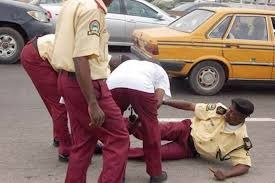Motoring
BMW launches fuel-efficient new Mini

BERLIN – BMW unveiled a more fuel efficient, third-generation version of its iconic Mini on Monday, as the world’s biggest luxury carmaker looks to retain its leadership in the lucrative high-end compact car market.
The launch of the three-door hatchback took place at the Mini’s production plant in Cowley, Oxford, on the 107th anniversary of the birth of the Mini’s founding father Alex Issigonis. Prices will start at about 13,500 pounds ($21,700).
“It’s a brand new car under the skin and it retains that go-kart feel to drive,” said BMW board member Peter Schwarzenbauer, who was driven on to stage to the music of British band Blur in a Mini adorned with the Union Jack flag.
Describing the new Mini as “original and still cheeky,” he said it would appeal to “young people with their finger on the pulse” and older Mini fans. The previous Mini generation was launched in 2007.
 Production of the new Mini will start later this week and it will go on sale in Britain early next year. It will be based on a brand new BMW-engineered platform called UKL1.
Production of the new Mini will start later this week and it will go on sale in Britain early next year. It will be based on a brand new BMW-engineered platform called UKL1.
The small, fast and affordable original Mini was hugely popular when it first went on sale in 1959 and has been a big success story for BMW since it revived the brand in 2001, growing sales volumes by 21 percent to more than 285,000 cars last year.
It has also seen an influx of competitors into the high-end compact car sector in recent years such as Fiat’s (FIA.MI) 500 and Opel’s (GM.N) Adam, which are courting environmentally-conscious city dwellers in want of easy-to-park vehicles.
FURTHER INVESTMENT
The new range, which will be displayed later this week at the Los Angeles and Tokyo motor shows, will continue to include a basic MINI One, mid-range MINI Cooper and MINI Cooper D diesel, as well as a top-spec MINI Cooper S version. They are taller, longer and wider than the previous generation.
The car features a new grille, LEDs on the front lights, a steeper windscreen and a lower rear bumper. It will come with a choice of three new 3 or 4 cylinder engines with fuel consumption reduced by about 27 percent, Schwarzenbauer said.
The new MINI One will be the entry-level model and prices should start at around 13,500 pounds, with the MINI Cooper, which comes with more equipment and a more powerful engine as standard, coming in at around 15,000 pounds, a source close to BMW said.
There will also be a 16,000 pound diesel version of the Cooper, called the MINI Cooper D, which will be the most economical model in the range. The MINI Cooper S, costing 18,500 pounds, will be the fastest and most powerful model.
The MINI Cooper and Cooper D will be around 400 pounds more expensive than current models, the source said.
BMW also said it would invest 750 million pounds at its three British plants in the coming years, with 500 million of that being pumped into the plant in Oxford, where a new body assembly arena has been built featuring 1,000 robots, more than double the amount used on previous versions.
It said the investment would support its international growth plans for the Mini, which will expand its current line-up of seven models to include up to 10 different body styles in the medium term.
“Mini is in good hands with BMW,” British transport secretary Patrick McLoughlin said.
“The success of the Mini proves Britain’s manufacturing sector is good enough to compete and win on the global stage.”
– REUTERS
Motoring
FCTA Pulls Plugs On Taxi Rank, Terminal Services Contracts

The Federal Capital Territory Administration (FCTA) has ended contracts with taxi rank and terminal operators due to their failure to meet engagement terms and conditions.
Mr. Ubokutom Nyah, the Mandate Secretary of the Transportation Secretariat, FCTA, made this announcement during a meeting with managers of these terminals and taxi ranks in Abuja.
Nyah clarified that due to the operators’ failure to fulfill their engagement terms, the FCTA had to terminate their contracts.
He instructed them to transfer control of the ranks to the Administration within three months, starting from Nov. 21.
He lamented the presence of unauthorized motor parks in the city and assured the readiness of the Administration to establish proper taxi ranks and terminals in the capital.
He revealed that personally visiting the city’s taxi ranks, terminals, and unauthorized motor parks gave him direct insight into the poor condition of these facilities.
He emphasized that as the federal capital city, Abuja deserves better, highlighting that the poor condition of these facilities attracts various criminal elements.
He said “We must rid Abuja of all these. I have gone round the taxi ranks, and of all the places I visited, not one is worthy to be called even a village motor park.”
The Mandate Secretary stressed that the intention wasn’t punitive; rather, it aimed to revamp the sector, introduce new engagement terms, and modernize taxi ranks and terminals in the federal capital.
He also highlighted the plan to increase the number of terminals and ranks where necessary, which would positively impact the administration’s revenue.
He emphasized that this measure was part of a broader effort to eliminate illegal motor parks in Abuja and curb the associated criminal activities.
In response, Mr. Adebisi Lawal, the Operator of Jahi Taxi Rank, praised the administration’s initiative to modernize the taxi ranks and terminals.
Lawal urged the administration to prioritize current operators’ involvement in the selection of new developers for the modernization of the taxi ranks and terminals.
Motoring
Power Show Sees Soldiers Batter LASTMA Officer

It was a show of power at the Ojota area of Lagos on Monday as soldiers pummeled an officer of the Lagos State Traffic Management Authority, (LASTMA).
Eyewitness accounts claim that the ugly scene played out around 8am, and saw about eight soldiers pounce on the yet to identified LASTMA official, while his colleagues took to their heels.
The video of the melodrama has gone viral, where the LASTMA official was appealing to the soldiers, who appeared bent on ‘teaching him a lesson’.
This onslaught comes on the back of a reported assault of a soldier at the same location by LASTMA officials last week.
It would appear that what played out today was the army asserting its authority and defending their khaki as the armed soldiers carried out what looked like a revenge mission.
Eyewitnesses further averred that the victim was rushed to a nearby hospital, after the soldiers left the scene.
It was gathered that the authorities at LASTMA has reported the incident to the military authorities who are said to be looking into the matter.
Meanwhile many members of the public are rejoicing that the soldiers have taught the crude LASTMA official that power is stronger than power, for all their atrocities against motorists on Lagos roads.
Motoring
Intra-City Fares Skyrocket By 98% Month-On-Month – NBS
The impact of the removal of subsidy on Premium Motor Spirit (PMS), otherwise known as petrol, has seen the pump prices of the product skyrocket with a corresponding increase in the cost commercial transportation in Nigeria.
According to the National Bureau of Statistics (NBS), intra-city bus transportation fares across Nigerian cities, measured between May and June 2023, increased from N649.59 to N1,285.41 in June 2023.
This translates to 98 percent growth or N635.82 within the month in view.
The NBS made the data available in its Transport Fare Watch report for June 2023.
In the report, the NBS also shared the breakdown of bus journeys within the cities per drop for constant routes; bus journey intercity (state route); charges per person, amongst others.
On a year-on-year basis, the report has it that bus fares rose by 120.63 percent from N582.61 paid by commuters in June 2022.
The average fare paid by commuters for bus journey intercity per drop rose to N5,686.49 in June 2023 compared to N4,002.16 in May 2023 indicating an increase of 42.09 percent, month-on-month.
The report read, “The average fare paid by commuters for bus journeys within the city per drop increased by 97.88 per cent from N649.59 in May 2023 to N1,285.41 in June 2023.
On a year-on-year basis, it rose by 120.63 per cent from N582.61 in June 2022.
“In another category, the average fare paid by commuters for bus journey intercity per drop rose to N5,686.49 in June 2023, indicating an increase of 42.09 on a month-on-month basis compared to N4,002.16 in May 2023.
“On a year-on-year basis, the fare rose by 55.25 per cent from N3,662.87 in June 2022.”
Biztellers reported that the twin forces of forex pressure and increasing price of Brent in the global market would likely see the pump prices of petrol, increased again in no distant time in Nigeria.













